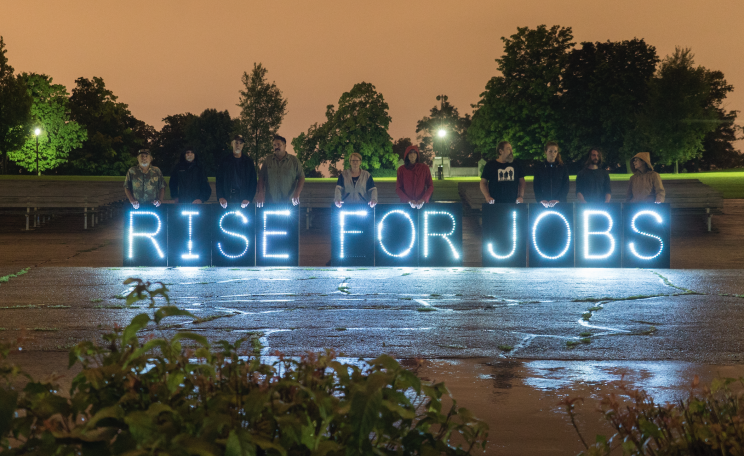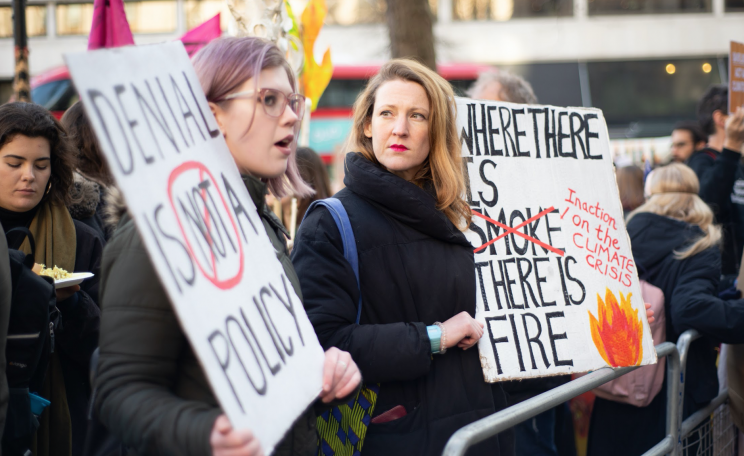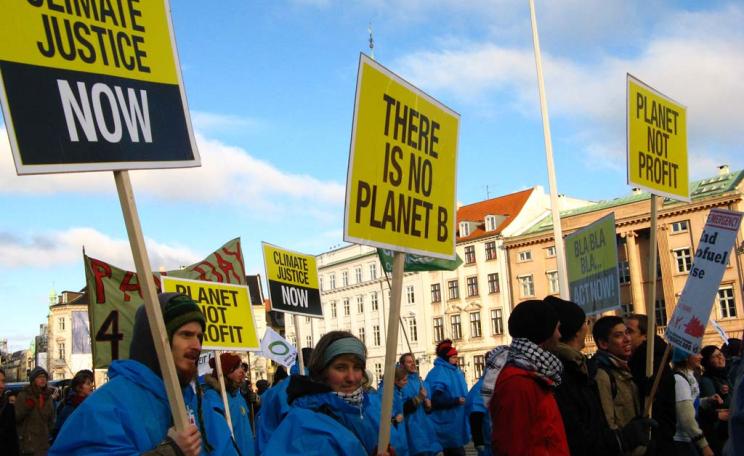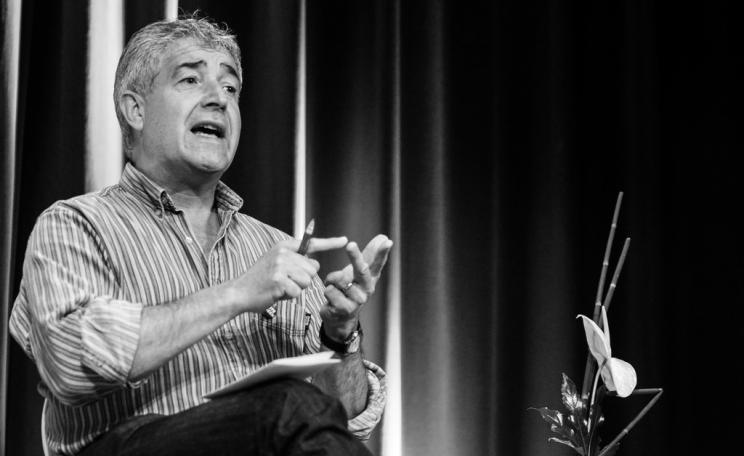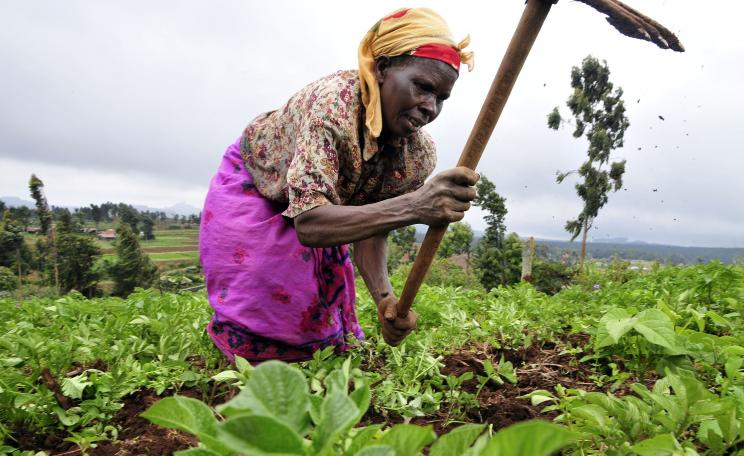-
Recently, I saw a headline in The Telegraph: “The climate protesters seeking a return to a pre-industrial age would doom us to lives of misery”. The article explains how economic growth is not a problem, but rather the solution to global warming.
After opening the article by criticising the lack of self-sacrifice by two Extinction Rebellion protesters whom he witnessed buying a bottle of wine (not allowed in the “lives of misery” he expects of climate protesters), he goes on to explain that their goal is the “almost wholly unrealistic” one of reaching zero emissions within five years.
Environmentalists, he says, believe that the pursuit of economic growth is the root of our current problems. But, if there are solutions he says, they lie “not in taking a step back in time to a by-gone, pre-industrial age”, but rather in more growth and technology.
Beyond money
The Telegraph reporter adamants that we do need to “tame” the destructive outputs of industrialisation that threaten our world, but only by increasing incentives around economic improvement: “We undermine and ridicule the pursuit of economic advancement at our peril.”
I want to share a few thoughts on this narrative, and to question why economic growth is framed as a value that we should aspire to.
I’ve recently been in Kenya and in Tanzania with Arukah Network, working with two groups (‘Clusters’) of community and organisational leaders who come together and collaborate by sharing ideas, encouragement, resources, information, services and more.
In various ways, Clusters aim to move beyond depending on unpredictable outside help and instead, to better understand and share the strengths present in their communities in order to solve the challenges they face and ultimately, to improve their health, wellbeing and happiness.
I’ve also helped out with a couple of Repair Cafés in the UK, like this one in Manchester. These are occasional volunteer-run events to which community members can take along broken household goods and get them fixed, for free. The cafés build community relationships, reduce the amount of stuff that goes to landfill, and share valuable repair and maintenance skills.
Collaboration and wellbeing
Neither of these initiatives – Clusters, or Repair Cafés – require much money to run. But they create connectedness, collaboration and wellbeing which in turn reduce the burden on planet and society. My allotment does this too.
They contribute to solving some of the challenges we face without pursuing economic advancement as a goal. In fact, Repair Cafés actively reduce money being spent in the economy because material goods get repaired rather than replaced.
They reduce GDP. And yet it is clear that they contribute to an improved world.
We cannot eat money, or live in money, or expect money to listen to our heart and comfort us. Money is a commodity to – if we are lucky – spend on the things that we decide will bring us greater security, choice, wellbeing, happiness.
But Clusters and Repair Cafés – and even my allotment – show me that there are other ways to generate those things, too.
Hope or optimism
Whilst economic growth gets held up as a goal, or worse, a value – the denial of which is subtly framed as unpatriotic – there is another value; hope, that is sometimes framed as childish, naïve, unserious.
Another article about Extinction Rebellion in The Telegraph said “…scarier still is young voters’ capacity for hope: that they can look at the same world we do and be optimistic enough to believe they can change it.”
A capacity for hope is not the same as being optimistic. Hope takes work, and bravery, because like faith, it goes beyond circumstances we can see. It believes that the moral arc of the universe bends towards justice, even though there may be setbacks and even if we don’t get to see the outcome. Optimism can wear blinkers; it believes things will turn out well despite evidence to the contrary.
I’ve been involved in marches against things, and for things. I was unable to join the Extinction Rebellion protests. Frankly, I’m actually not very good at this kind of action – though I believe it is necessary.
I believe too that we should identify our personal strengths and capacities, and contribute these towards building the world we want to see. We do not all need to do everything. We do not need to feel guilty if we cannot protest.
Common ground
We do not even need to call ourselves an ‘environmentalist’ if that media-warped word does not reflect our complexity.
To care about our planet does not require we join certain tribes, or wear certain clothes, or adopt certain labels. To care about our planet requires we live wholeheartedly as if this is the case.
It requires we talk about our common ground and use this as a starting place into which to pour our unique identity and strengths. And it requires we find some kind of hope to fuel it.
Hope, and the desire (and action) to create a new narrative, is like kryptonite to the voices that tell us we are unpatriotic when we stand against business as usual and for a different story.
Rejecting business as usual is not the same as being deluded, irrational, or unpatriotic. It means we think there is a new way and though we cannot describe it yet, we are willing to use our messy, wine-buying, hope-carrying imperfect selves to bring it about.
Prosperous society
Lastly, it feels important to decouple the idea of moving away from a carbon-powered society from a move towards a life of “misery". This is not about moving backwards, but about coming together to create a new vision of where ‘forward’ should take us.
My idea of forwards is not to return to a pre-industrial way of life. My idea of forwards is to create new languages for collaboration rather than competition.
My idea of forward is of individuals, communities and societies flourishing and prospering in a way that recognises and regenerates the Earth’s finite resources. The word ‘prosper’ comes from the latin prosperare, meaning ‘cause to succeed, render happy’, and traditionally from Old Latin pro spere, meaning ‘according to one’s hope’. There’s that hope, again.
Imagine if a ‘prosperous’ society was one collectively working towards a happy, hopeful, just vision – and not increased GDP.
Whether or not we joined the Extinction Rebellion protests, they give us an opportunity to take stock of our strengths and values. And they give energy and a hope that has been scarce.
History says, Don’t hope
On this side of the grave,
But then, once in a lifetime
The longed-for tidal wave
Of justice can rise up
And hope and history rhyme.
From Seamus Heaney’s The Cure at Troy.
This Author
Elizabeth Wainwright is a writer, a contributing editor at The Ecologist, and co-leads the community development charity Arukah Network. You can find her on Twitter @LizWainwright.


